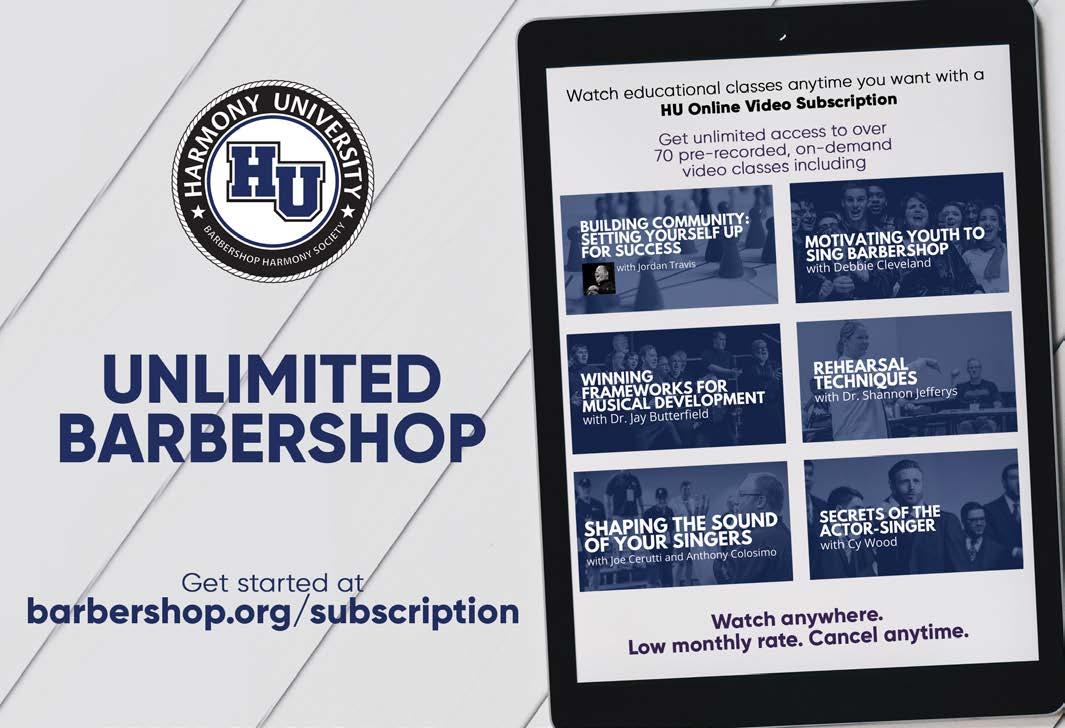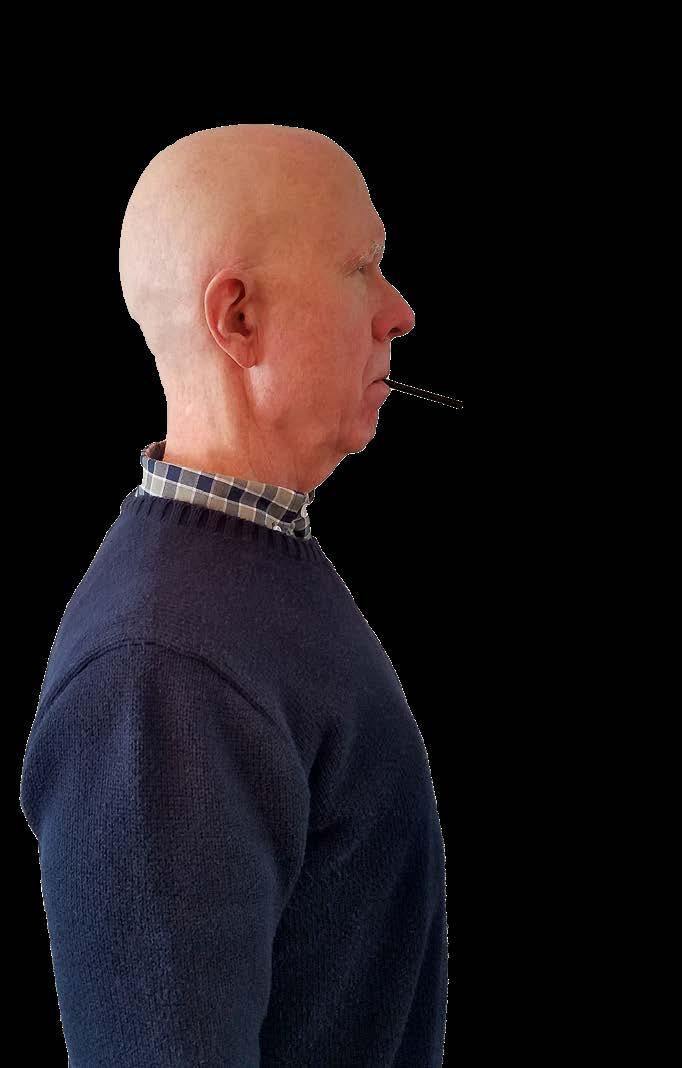Musical performance readings for a rainy day (or for a pandemic) The most valuable knowledge in the entire music world is easy to find for under $30
H
ow do you get better at Barbershop during a pandemic? One answer: read! But where do you start? Here’s a short list of top books that focus on concepts from the Singing, Music, and Performance categories, as well as a fourth set of books to help develop your Barbershop mindset. This list is primarily page-turners, most under $30, with ebooks versions often about $10. All are available at Amazon.com, as well as other sources.
PERFORMANCE CATEGORY READINGS What Do I Do with My Hands? (Carlson): Clear and concise exploration of acting from the singer’s perspective. Acting Songs (Brunetti): A stepby-step technique for bringing truthful performance to song. Choral Charisma (Carter): Full of exercises and practical advice to increase a singer’s expressiveness. Meisner on Acting (Meisner): Unleashing the actor’s greatest tools: clarity of purpose and a realistic approach to imagination and creativity. The Right to Speak (Rodenburg): How to use the voice fully and expressively without fear and to have total confidence in whatever you sing. MUSIC CATEGORY READINGS The Anatomy of Tone (Jordan): Essential aspects of anatomy, physiology, and acoustics (resonance and formants), choral spacing for balanced resonance, vowel architecture, lis-
tening skills, and more. On the Art of Singing (Miller): An indispensable common-sense guide on vocal technique, style, and interpretation. The Art of Practicing (Bruser): Techniques to reshape your practice, enjoy yourself, make good sounds, and sing from the heart. Emotion and Meaning in Music (Meyer): Dispels many confused notions of music theory and aesthetics, including the relationship between pattern and meaning. Pocket Music Dictionary (Leonard): This $10 gem is an at-a-glance summary of 2,200 essential music terms. SINGING CATEGORY READINGS The Estill Voice Model (Steinhauer): Basic elements of biomechanics, vocal resonance, voice analysis, and vocal health. Anatomy of the Voice (Dimon): The first comprehensive, fully-illustrated approach to the voice that explains the anatomy and mechanics in detailed yet down-to-earth terms. Basics of Voice Science and Pedagogy (McCoy): Among the most widely used voice pedagogy textbooks, supported by a multimedia website with a wealth of audio and video examples. The Structure of Singing (Miller): Demonstrates the scientific basis of exercises and vocalizes, covering all major areas of vocal technique. Fundamentals of Great Vocal Technique (Trimble): A classical
method based on breath management through contrary motion (appoggio), with many author examples on YouTube. MINDSET READINGS The Art of Possibility (Zander): Twelve breakthrough practices for bringing creativity and a sense of possibility into your performance. The Musician’s Way (Klickstein): This must-read explores the relationship of learning, practice, and mastery. It Takes What It Takes (Moawad): This list’s only non-music book; a leading sports psychologist’s strategies and tools to overcome negativity and achieve any goal. A Soprano on Her Head (Ristad): Answers and methods for overcoming your psychological blocks, inhibitions, fears, and guilt. Inner Game of Music (Green): How to win the internal battle against nervousness, self-doubt, and fear of failure. BONUS: An Examination of the Barbershop Style (David Wright). Although not a book, it provides a lot of insight into the Barbershop style and how it should be sung. Happy reading! n
Dr. Philip Grant joined the faculty at HU in 2019 and has quickly become a highly sought-after clinician, working with Masters of Harmony, New Tradition Chorus, ATX, and a dozen more. philipstanleygrant@gmail.com
barbershop.org | March/April 2021 | The Harmonizer | 23









